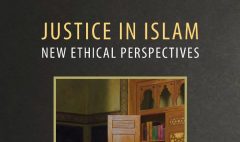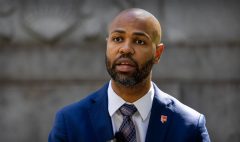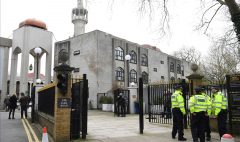PhD Thesis: “How Educational Leaders Influence the Experiences of Muslim Students in Public Schools”
November 28, 2023 2024-03-05 17:15PhD Thesis: “How Educational Leaders Influence the Experiences of Muslim Students in Public Schools”

PhD Thesis: “How Educational Leaders Influence the Experiences of Muslim Students in Public Schools”
PhD Thesis: “How Educational Leaders Influence the Experiences of Muslim Students in Public Schools”
Author: Maryam Siddiqa Hasan
University: University of Florida
Date of Award: August 2023
Abstract:
In the U. S., Muslim students have faced bias, bullying, and Islamophobia since the attacks on 9/11. This qualitative study aimed to investigate how educational leaders influence the experiences of Muslim students in public schools. Data for this exploratory investigation was collected via three one-on-one, semi-structured interviews of educational leaders who serve Muslim students in public schools. Although there were some limitations, the interviews resulted in three themes as findings. The first theme was that educational leaders’ cultural knowledge was used to implement accommodations that influence the experiences of Muslim students in public schools. The second theme was that educational leaders’ promoting social justice through inclusive practices influences the experiences of Muslim students in public schools. The third theme was that educational leaders’ cultural responsiveness with a caring attitude and critical self-reflection influences the experiences of Muslim students in public schools. In conclusion, educational leaders must seek knowledge about their Muslim students’ cultural and religious practices and must use this knowledge to implement accommodations for Muslim students. Educational leaders must strive to build relationships with Muslim students to understand their experiences and create warm, inviting, and welcoming spaces for them. Educational leaders should care about Muslim students’ experiences in schools by informing the school staff of the basic needs of Muslim students. Educational leaders must self-reflect and think critically about their own beliefs and values to be better suited to execute decisions, practices, and policies that influence students of all cultural and religious backgrounds.
Read the full text HERE.
Source: ProQuest








